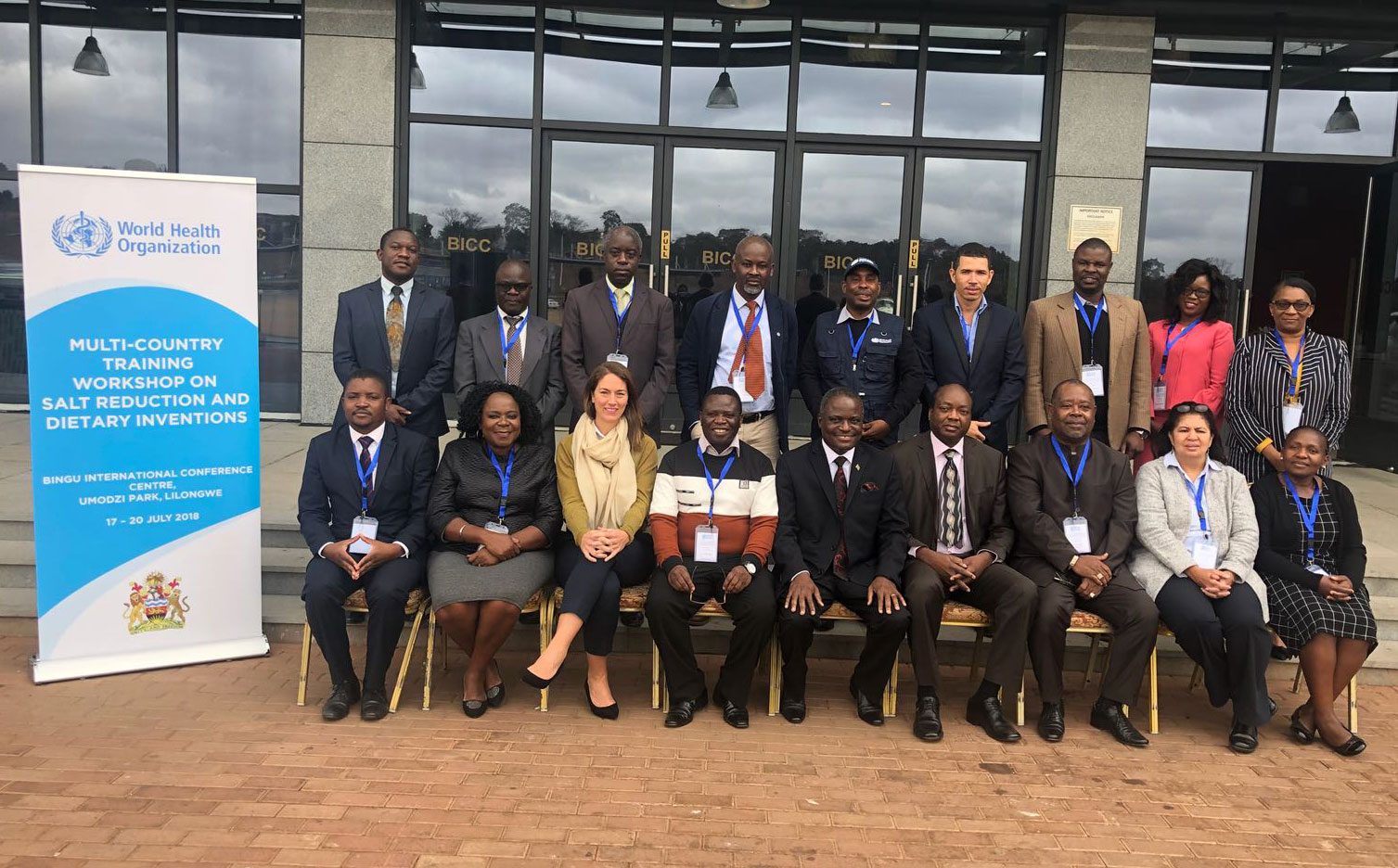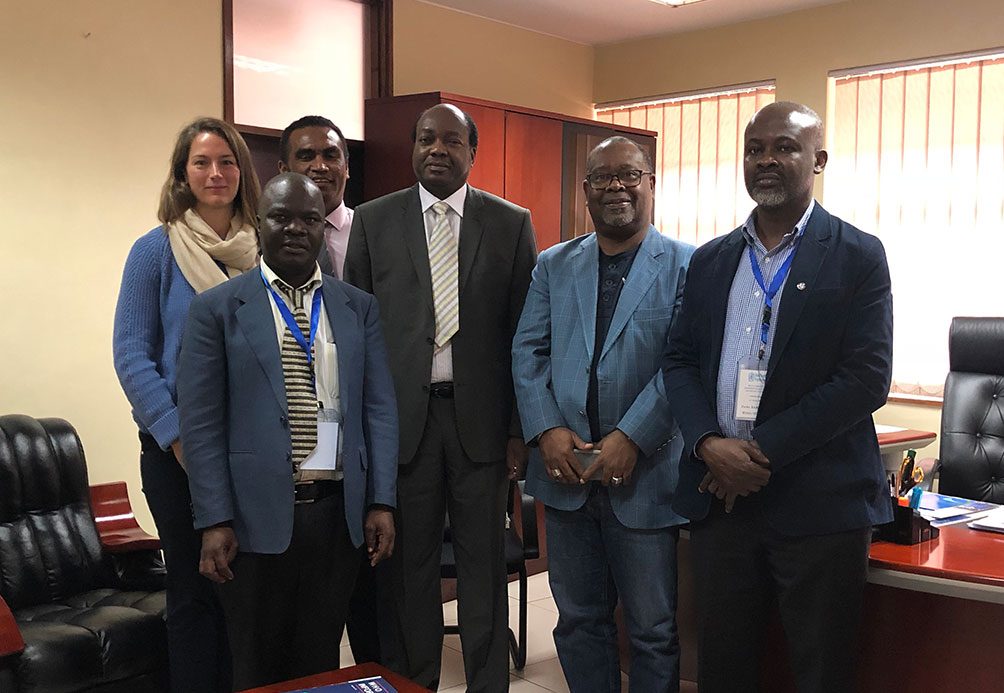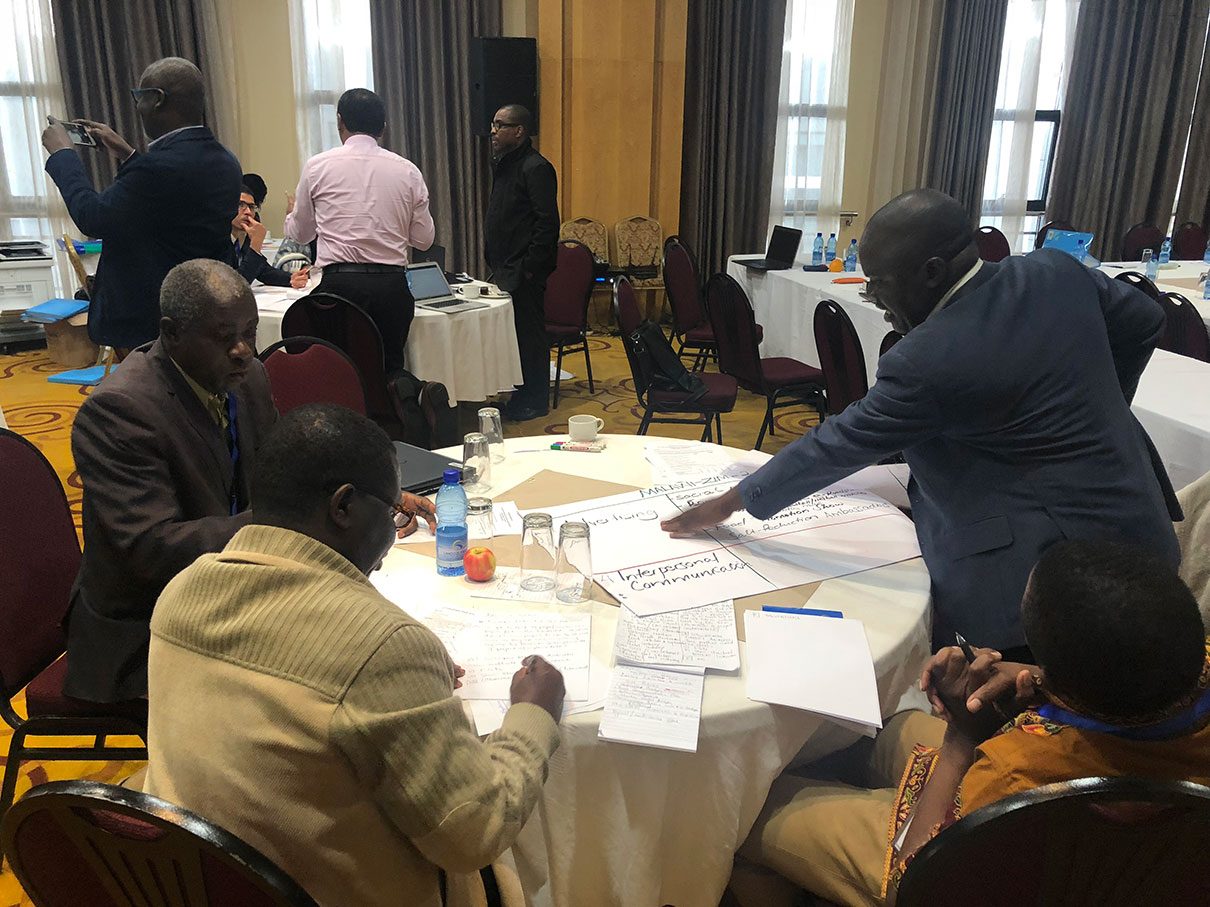
The George Institute supports Malawi’s first multi-country training workshop on salt reduction & dietary interventions in the African region
The Ministry of Health in collaboration with World Health Organization Country Office in Malawi hosted participants from 9 member states: Botswana, Lesotho, Malawi, Namibia, Seychelles, South Africa, Swaziland, Zambia and Zimbabwe to identify opportunities for population salt reduction in the region, and train participants using the newly developed WHO SHAKE Package for Salt Reduction.
Clare Farrand, Senior Project Manager, WHO Collaborating Centre on Population Salt Reduction, from The George Institute, supported the workshop, alongside Temo Waqanivalu from WHO Headquarters, Geneva.
The Africa region has the highest prevalence of raised blood pressure, the number one risk factor for cardiovascular disease. The burden of disease associated with high salt intake is on the rise– in 2008 46% of adults aged 25 years and older in sub-Saharan Africa were reported to have hypertension.
WHO Member States have agreed to a target to reduce population salt intakes by 30% by 2025 towards the WHO 5g/day recommendation for adults. A review from 2014 showed 75 countries were implementing salt reduction strategies, of which there was only one (South Africa) in the African region.
This workshop was the first in the region to bring together key focal points on diet and noncommunicable disease (NCDs) from Ministries of Health, and WHO Country offices in the region and provide training on practical steps to reduce population salt intake. The workshop built upon the 2012 ‘Creating an enabling environment for salt reduction’ workshop, and the 2013 ‘multi-stakeholder dialogue on risk factors for NCDs’ in South Africa, in 2013 which recommended actions to reduce salt including regulation and legislation on salt; banning the marketing of unhealthy foods, in particular to children; instituting compulsory labelling of salt, fat and calories on processed foods; taxing unhealthy foods; and supporting awareness campaigns to reduce sugar, fat and salt consumption.
Since, South Africa has enacted legislation to make the food industry reduce the salt content of a number of its products, and Mauritius is requesting bakery owners to reduce salt in bread. A number of countries are currently undertaking studies to measure salt intake in the populations. Overall progress is slow as the region experiences a double burden of communicable and noncommunicable diseases, competing health priorities and limited resources for health. Undertaking training of this kind using the WHO SHAKE the salt habit package aims to build on available resources, and progress activity in the region.

35 participants attended the workshop, and there was high-level support from Dr Charles Mwansambo, Chief of Health Services, Dr Leslie Mgalula, the Acting WHO Representative for Malawi and Dr Jones Masiye, the Head of the Non-communicable Diseases Unit in the Ministry of Health who opened the workshop.
The four-day workshop included interactive engagement on how to implement interventions from the WHO SHAKE the salt package for salt reduction, training on leadership skills and facilitated sessions to support countries to develop salt reduction action plans at the same time as considering broader dietary issues such as obesity prevention.
Specific activities included stakeholder mapping, to determine who are the main / key stakeholders for salt reduction in their countries; as well as communication plans to raise awareness about the dangers of a high salt diet including conducting situation market analysis, developing specific and precise behavioural objectives, and key messages, and communication and mobilization plans.
Additional training was provided around salt surveillance activities that could be undertaken as a first step. This included salt surveillance activities specifically related to undertaking a shop survey, to gather evidence about current levels of salt in processed foods available in each country. Participants were particularly interested in collaboration between countries within the region, with support from WHO and WHO Collaborating Centre on Salt Reduction.
The workshop was well received, and the lead facilitator of the workshop Dr Jean-Marie Dangou, WHO, alongside Dr Prebo Barango plan to continue to support further collaborations between countries, to enable us to achieve the global salt reduction target, and save the maximum number of lives.
Visit the WHO Collaborating Centre on Population Salt Reduction website.




